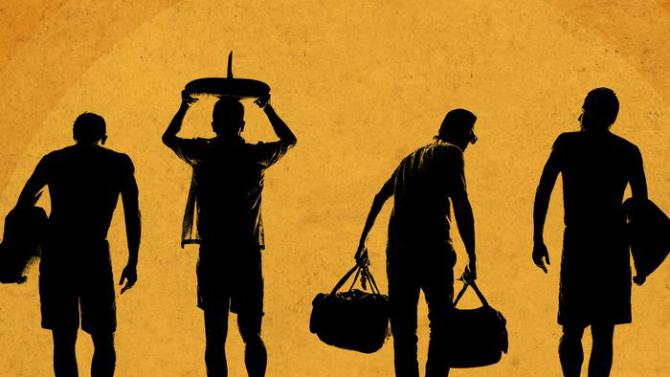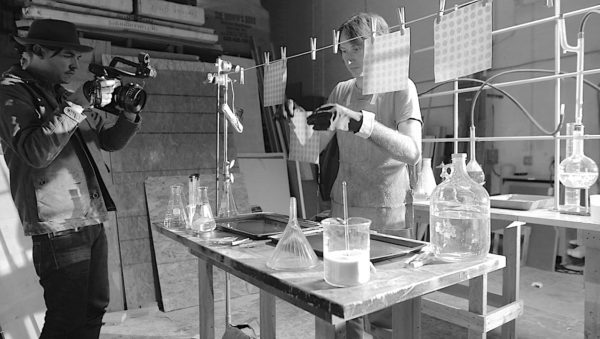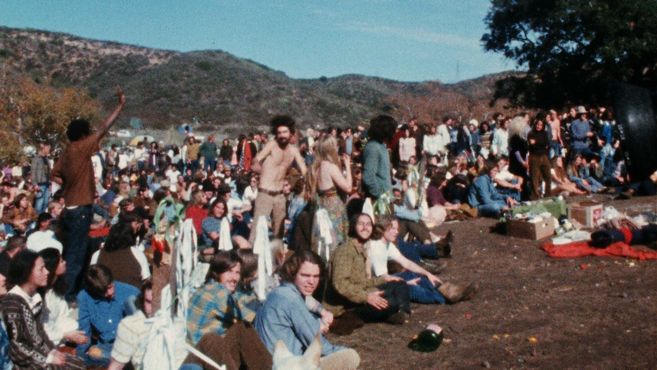
A shadowy organization that kept the hippies dosed at the height of the '60s counterculture is brought to the light of day in this entertaining documentary.
Though the height of the ’60s counterculture era, rumor had it that the primary importer of recreational drugs was something called “the Brotherhood” — an organization so shadowy that many assumed its existence was strictly mythological. But in fact a handful of West Coast surfers and early flower children did take extraordinary risks bringing psychedelic substances to the people in mass quantities, their goal being not illicit wealth but a “revolution” of lysergic enlightenment. This hitherto little-understood chapter is chronicled in William A. Kirkley’s entertaining and involving documentary “Orange Sunshine,” which mixes interviews, archival materials and re-enactments to provide a “Just Say Yes” flashback with nostalgic appeal to Boomers and exotic fascination for everyone else. Niche theatrical exposure is possible, with select broadcast and streaming placements a surer bet.
At the dawn of the decade, LSD was not yet illegal but very difficult to come by. Unable to afford buying doses outright, a couple of curious young SoCal souls robbed a man known to be holding an expensive stash of the stuff. Under the influence soon after, John Griggs could “feel divinity running through him”; a few months later his wife, Carol, took her own first “trip.” Though they’d already dug heels into the straight world of gainful employment, mortgages and children, they promptly abandoned all that (well, not the kids) in order to live communally with a few like-minded friends including best pal Michael Randall, brothers Rick and Ron Bevan, and Laguna surf-shop owner Travis Ashbrook.

Led by Griggs, who had a sort of messianic charisma as well as acute business sense, they determined to expand their own new focus on personal enlightenment into a “spiritual revolution” that would transform society as a whole. While the primary tool would be acid, these spiritual warriors also embraced a few other substances. Dubbing themselves the Brotherhood of Eternal Love — though they were remarkably successful in making sure very few others knew of their identity — they soon presided over an international operation that would eventually encompass an LSD lab that at one point produced 100 million doses; smuggling operations via planes, trains and automobiles from as far-flung as Afghanistan, with bricks of hash hidden in hollowed-out surfboards or musical instruments; and distribution lines to the street level throughout the turned-on world. (Orange Sunshine was the name of a a particularly popular and pure type of LSD with which the Brotherhood became associated.)
Despite this stupefyingly large-scale activity, surviving participants say they never hoarded cash or lived in luxury, staying true to their hippie ideals. (They claim the ultimate goal was to give away LSD for free.) Nevertheless, their efforts inevitably attracted unwanted attention. President Lyndon B. Johnson, then President Nixon and Gov. Reagan, prioritized fighting a “drug scourge” that no longer affected just society’s fringe, but also middle-of-the-road taxpayers’ own children. Closer to home, Laguna Beach police chief Neil Purcell (still unamused a half-century later) made it his business to crack down on what he suspected was a massive operation right under his nose, though he had a surprisingly tough time convincing state and federal authorities.

There’s no lack of incident to this stranger-than-fiction tale, from the Brotherhood’s close relationship with psychedelic guru Timothy Leary (they were directly involved in later breaking him out of prison) to one major character’s tragic death by overdose. As the law-enforcement noose tightened, most principals were able to scatter before a large-scale raid finally occurred. But sooner or later, despite years spent living abroad and/or under aliases as fugitives, nearly all found themselves under arrest.
They’ve all long since done their time, however, and none are remotely apologetic about a mission they still insist was essentially philanthropic. (Their lawyer, Michael Kennedy, also represented such radical activist orgs as the Black Panthers, the Weathermen, and the Chicago Seven.) Many still ponytailed and wearing crystals in old age, the protagonists fly a die-hard freak flag for an era that in most respects now seems unbelievably remote in cultural and political terms, despite its significant impact. (As one notes, grocery stores wouldn’t stock organic foods now if the hippies hadn’t first popularized such ideas.)
Kirkley (“Excavating Taylor Mead”) packages this saga as a sort of sunny retro thriller, maintaining a brisk pace and lively aesthetic surface. The caper narrative tilt is heightened by having actors play the main characters in wordless re-enactment sequences that blend quite well into the whole, being shot to look like 8mm home movies and other archival materials. These constitute at least 40% of an assembly that’s well turned in all tech and design departments.
Orange Sunshine Trailer from William Kirkley on Vimeo.

Please complete your information below to login.
Sign In
Create New Account